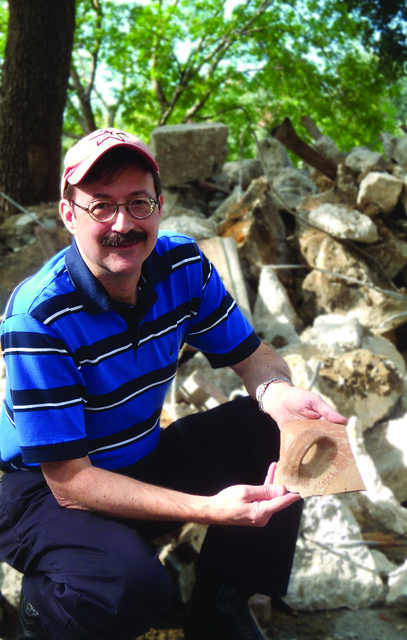For their honeymoon, Scott Langston took his wife on an archaeological dig at an ancient biblical site in Israel. Granted, they went to Greece for 10 days afterward, but the couple spent their first weeks of wedded bliss working in arid, desert-like heat. And he loved it.
“It was funny because here I am, on my hundredth dig and I keep finding mud brick after mud brick; she’s finding jewelry and pottery8212;all the good stuff,” Langston said.
Langston’s whole life has revolved around history in some form or facet. Almost dedicated to a life in the ministry, Langston ultimately decided to teach students instead of church members, citing an inalienable drive to understand the past.
A die-hard Astros fan and resident of Weatherford, Langston said he relates well to country music.
“I’ve always had a real vested interest in history of all kinds, but a large part in American history,” he said. “Country music just really resonates with the spirit of the American people.”
In particular for Langston, Alan Jackson’s 1998 hit, “Little Man.” “It’s such a defining song,” Langston said, “It’s about someone who works hard, raises their family and just lives their life.”
Also in Langston’s repertoire of all-time favorite songs, The Beatles’ “Revolution,” and Creedence Clearwater Revival’s “Lookin’ out my Back Door.”
“Just that era and what they represented8212;peace and love8212;I’ve always loved that sort of “everyman’ quality,” he said.
In the same vein is Don McLean’s “American Pie,” and as the odd album out, Langston said he loves Vivaldi’s “Concerto for Four Violins.”
Classical music, he said, is in a league of its own and besides being relaxing and just plain beautiful, it’s the basis for all modern day music8212;the historical base.
Last semester Langston taught an anthropology course called Biblical Archeology. His regular courses include Understanding Religion, Understanding the Bible and a few American history classes.
Wondering how an almost-minister can teach a class concerning the historical accuracy of the Bible? Langston says it’s about delineation.
“I’m able to separate my personal beliefs with what I’m teaching and what I’m discussing,” he said. “One of my favorite things about history and teaching is the ability to cross boundaries.”
Langston said that although he has an ear for music the ability to make it seems to have skipped a generation with him. His mother played the piano and his daughter is a talented clarinetist. But, if traveling were a talent, it would be one Langston was a natural at. Between archeological digs and traveling for fun or teaching.
Langston said he has been to Israel eight or nine times and has journeyed to Egypt, Greece, Jordan, Canada and all over Europe. He wistfully recalls “messing around on the West Bank” as a young twentysomething, not then realizing how dangerous it was.
What Langston loves about history and music the most is that, to him, it all goes back to people.
“History is fascinating to me because it’s something everyone can relate to,” he said. “It’s the history of people.”

